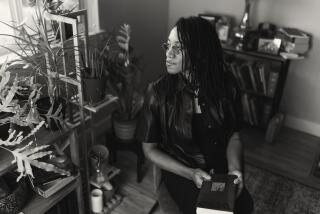Claude Simon, 91; French Novelist Won Nobel Prize in 1985
- Share via
PARIS — Nobel laureate Claude Simon, a pioneer of the experimental “new novel” style of the 1960s, has died. He was 91.
Simon died Wednesday and was buried Saturday in Paris, according to France’s Culture Ministry.
The Swedish Academy that awarded Simon the 1985 Nobel Prize in literature cited the novel “Les Georgiques” (The Georgics) as perhaps his most important work. The 1981 novel depicts Simon’s experience with the Republican side in the Spanish Civil War.
Born of French parents Oct. 10, 1913, in Tananarive, on the island of Madagascar, Simon began writing in 1945 with “Le Tricheur” (The Cheat), an existential fable that resembled Albert Camus’ “L’Etranger” (The Stranger).
The author of more than 20 works, Simon made his literary breakthrough as an exponent of the French nouveau roman, or new novel, style in 1960, with “La Route des Flandres” (The Road to Flanders), set during World War II.
Prime Minister Dominique de Villepin expressed his “very deep sadness” at Simon’s death.
“French literature has lost one of its greatest authors,” he said in a statement from his office. “Claude Simon will remain as one of the great novelists of collective and individual memory.”
The “new novel” style dispensed with such literary norms as plot and character development. Simon’s novels present characters in a state of emotional turmoil, often obsessed with memories.
His intricate, free-flowing style makes his works difficult to read -- said to partly explain why he was not well-known even in France. Some critics have compared his jumbled chronology and abrupt transitions to the techniques of William Faulkner.
Simon once said of his own work: “I am incapable of making up a story. All I write is taken directly from real life; I only copy reality.”
Information about survivors was not immediately available.
More to Read
Sign up for our Book Club newsletter
Get the latest news, events and more from the Los Angeles Times Book Club, and help us get L.A. reading and talking.
You may occasionally receive promotional content from the Los Angeles Times.






